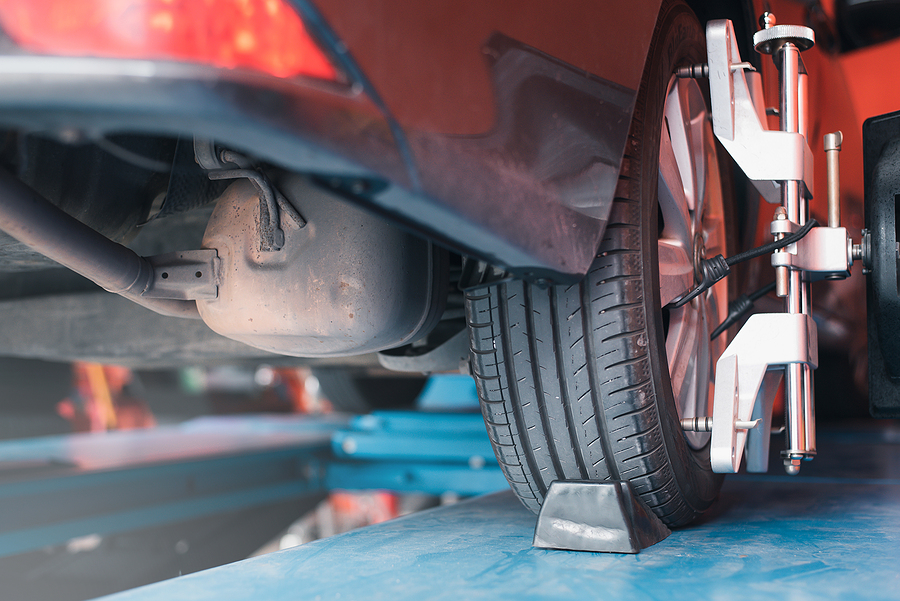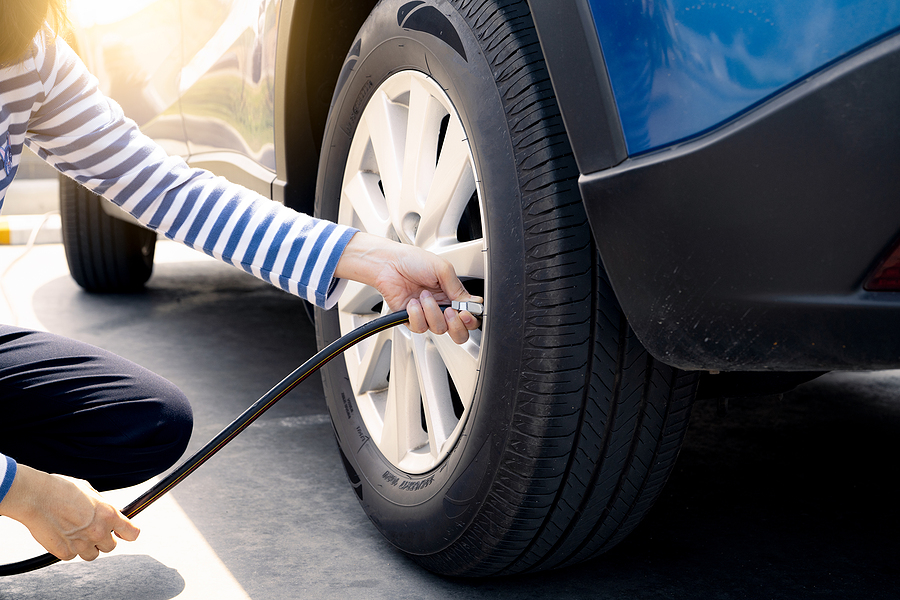Vehicle alignment plays a pivotal role in ensuring a smooth, comfortable ride and prolonging the lifespan of your car’s tires. Misalignment can lead to uneven tire wear, poor handling, and decreased fuel efficiency. This blog post will delve into the importance of regular vehicle alignment checks and maintenance, the process of tire rotation, and how these practices contribute to overall car upkeep.
So, fasten your seat belt as we navigate the roads of vehicle alignment – a key, yet often overlooked, aspect of car maintenance. Continue below to get started!

The Importance of Routine Vehicle Alignments
Efficient and Safe Maneuvering
One of the key benefits of regular vehicle alignment check-ups is that it helps to ensure efficient and safe maneuvering. In a properly aligned vehicle, all four tires are angled correctly relative to the axles and wheels. This allows them to make contact with the road at ideal angles, improving handling and braking performance. Misalignment can cause tires to wear more quickly, reducing their lifespan and reducing fuel efficiency. It can also cause the vehicle to pull in one direction or vibrate while driving. All of these issues can be easily avoided by scheduling regular alignment checks for your car.
Tire Care
Another important component of car maintenance is tire rotation – the process of switching around an axle’s four tires at predetermined intervals (usually every 5,000 to 8,000 miles). This helps ensure even tire wear and extends the lifespan of all four tires. It is important to note that rotation should be done in a specific order since some vehicles may require a different sequence than others. Tire rotation also helps improve handling, ride quality, and fuel efficiency.
Car Maintenance Essentials
All in all, it’s clear to see that vehicle alignment and tire rotation are essential aspects of car maintenance that should not be overlooked. Regular alignment checks help ensure safe maneuvering, while proper tire rotation extends the lifespan of all four tires and improves handling. So, there you have it – the key to smooth rides! Make sure to schedule routine alignments and rotate your tires according to manufacturer’s recommendations for a smoother ride each time you hit the road. Happy motoring!
Bonus Tips for Keeping Your Car in Tip-Top Shape
In addition to scheduling regular alignment checks and tire rotations, there are a few extra tips that you can keep in mind when it comes to maintaining your car. Here they are:
Be aware of your vehicle’s service schedule. Make sure to stay up-to-date with your car’s service maintenance schedule. This will help you keep track of when it’s time for an oil change, tire rotation, or alignment check.
Change the air filter. A dirty air filter can hinder engine performance and cause poor fuel economy. Consider replacing the air filter with each oil change to ensure optimal engine performance.
Check your fluid levels. Checking your automotive fluids, such as the oil, brake, and coolant levels, is also essential for prolonging the life of your vehicle’s components. Make sure to check these fluids at least once a month or before long trips.
Look out for signs of wear. Pay attention to any subtle changes in your car’s handling or performance that may indicate it is time for an alignment check. This could include uneven tire wear, steering wheel vibration, or the vehicle pulling to one side.
Now that you are armed with a better understanding of how vehicle alignment and tire rotation play key roles in car maintenance, as well as some bonus tips for keeping your car in tip-top shape, you can hit the road with confidence. So, get out there and enjoy your smooth ride!
Make sure to keep up with scheduled alignments, tire rotations, oil changes and more for a safe and enjoyable journey every time you drive. Contact Northeast Auto Service at 317-475-1846 for ASE licensed and trained factory scheduled maintenance and car inspections in Indianapolis, Indiana. We work on all make and model vehicles!
Related Posts:
Recommended Maintenance for a Car That Has Not Been Driven in a While
When Should I Rotate and Balance My Car Tires?
10 Tips for Saving Money on Factory Scheduled Car Maintenance


